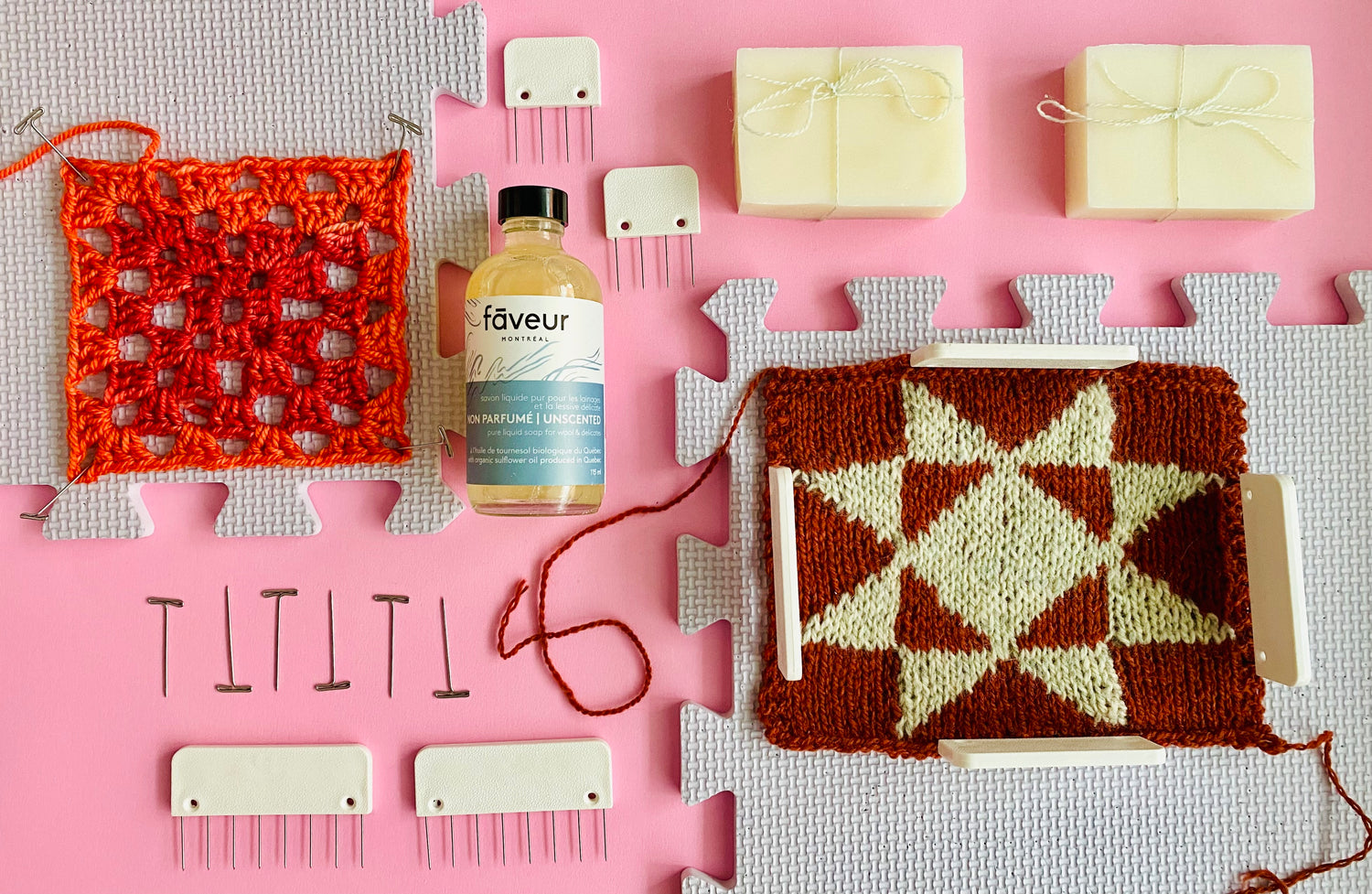Choosing the right type of yarn or wool for your knitting or crochet projects is essential to achieving the desired result. With so many choices available, it can be difficult to know where to start. This guide will help you understand the different categories of yarn and wool and their uses to help you make the best choice for your projects.
Categories of yarns and wools
-
Plant fiber yarns (such as cotton, linen, hemp)
- Features : Soft, lightweight, and breathable.
- Uses : Ideal for summer clothing, lightweight accessories, and baby items.
- Care : Generally machine washable.
-
Acrylic Yarn
- Features : Economical, easy to maintain, and available in a wide range of colors. Made from petroleum products (plastic) so does not breathe very well and does not degrade at the end of its life.
- Uses : Perfect for blankets, children's clothing, and accessories.
- Care : Generally machine washable .
-
Sheep wool
- Features : Warm, stretchy, and durable.
- Uses : Ideal for sweaters, scarves, hats, and socks.
- Advice : Merino wool is particularly soft and suitable for projects worn next to the skin, but several other sheep provide wool and offer all sorts of different benefits. We invite you to browse our selection of wools to discover them.
- Care : Generally hand-washed . To withstand machine washing without felting, a wool must be labeled "washable wool" or "superwash"
-
Various animal wools
- Alpaca : Very soft and warm, perfect for winter clothing. Very drapey so "softer" than sheep's wool.
- Cashmere : Luxurious, extremely soft, ideal for refined accessories.
- Mohair : Light and fluffy, perfect for scarves and shawls. Often knitted doubled with another yarn to add its properties to a rounder and more uniform yarn.
- Features : Combine the advantages of several fibers, for example, animal wool and a plant fiber.
- Uses : Versatile clothing, combining warmth and breathability, durable accessories.
- Advice : Check the composition to know the exact properties of the yarn.
Choosing the Right Yarn for Your Project
-
Consider the season : Use lightweight yarns like plant fibers for summer projects and warmer wools like sheep or alpaca for winter projects.
-
Consider maintenance : Acrylic yarns are easy to care for and can be machine washed, while natural wools may require hand washing.
-
Think about texture : For garments worn next to the skin, choose soft yarns like merino. For sturdy accessories, coarser or blended yarns may be more appropriate.
-
Check the gauge : Yarn thickness affects the final result of your project. Make sure you choose a yarn with a gauge that matches the pattern you are following. And make a swatch to confirm!
-
Read the labels : Yarn labels provide valuable information about composition, care recommendations, and gauge. They may also indicate recommended needle or hook sizes.
Recommended uses by category
- Cotton : Summer tops, amigurumis, makeup remover wipes, home accessories, baby clothes and blankets.
- Sheep's wool : Sweaters, cardigans, hats, scarves, mittens, socks, slippers.
- Alpaca : Sweaters, headbands, shawls, mittens.
- Mohair : Shawls, scarves, light sweaters or lined with a sheep thread.
We hope this guide helps you choose the perfect yarn for your next project. Feel free to explore our online store to discover our vast selection of high-quality yarns, suitable for all your creative needs. If you have any questions or need further advice, our team is here to assist you.









